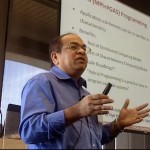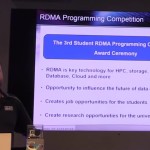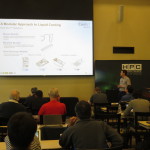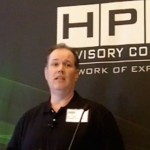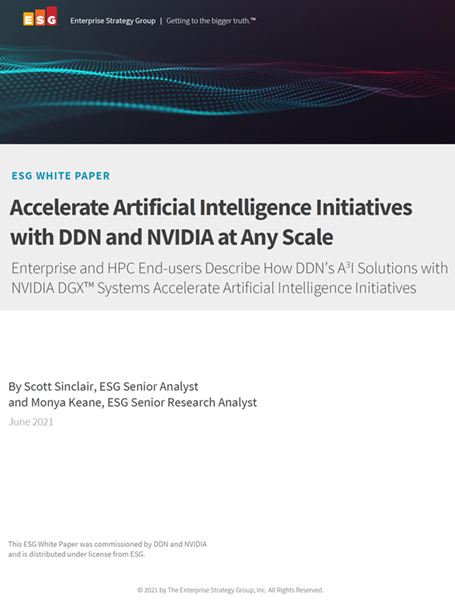“This talk will focus on programming models and their designs for upcoming exascale systems with millions of processors and accelerators. Current status and future trends of MPI and PGAS (UPC and OpenSHMEM) programming models will be presented. We will discuss challenges in designing runtime environments for these programming models by taking into account support for multi-core, high-performance networks, GPGPUs, Intel MIC, scalable collectives (multi-core-aware, topology-aware, and power-aware), non-blocking collectives using Offload framework, one-sided RMA operations, schemes and architectures for fault-tolerance/fault-resilience.”
Intersect360 Research to Discuss Hyperscale Trends at Stanford HPC Conference
There is still significant influence between HPC and hyperscale, in both directions, most notably in the areas of cognitive computing and artificial intelligence, where research at some of the top hyperscale companies leads the field. Standards like Open Compute Project, OpenStack, and Beiji/Scorpio also can drive acquisition decisions at traditional HPC-using organizations. Big data and analytics also transcend both HPC and hyperscale, driving I/O scalability in both markets. These trends are all included in the new hyperscale advisory service from Intersect360 Research.
Agenda Posted for HPC Advisory Council Stanford Conference 2016
The HPC Advisory Council Stanford Conference 2016 has posted its speaker agenda. The event will take place Feb 24-25, 2016 on the Stanford University campus at the new Jen-Hsun Huang Engineering Center. “The HPC Advisory Council Stanford Conference 2016 will focus on High-Performance Computing usage models and benefits, the future of supercomputing, latest technology developments, best practices and advanced HPC topics. In addition, there will be a strong focus on new topics such as Machine Learning and Big Data. The conference is open to the public free of charge and will bring together system managers, researchers, developers, computational scientists and industry affiliates.”
Video: Introduction to the HPC Advisory Council
In this video from SC15, Brian Sparks from Mellanox presents an overview of the HPC Advisory Council. “The HPC Advisory Council’s mission is to bridge the gap between high-performance computing (HPC) use and its potential, bring the beneficial capabilities of HPC to new users for better research, education, innovation and product manufacturing, bring users the expertise needed to operate HPC systems, provide application designers with the tools needed to enable parallel computing, and to strengthen the qualification and integration of HPC system products.”
Call for Participation: HPC Advisory Council Stanford Conference
The HPC Advisory Council Stanford Conference 2016 has issued its Call for Participation. The event will take place Feb 24-25, 2016 on the Stanford University campus at the new Jen-Hsun Huang Engineering Center. “The HPC Advisory Council Stanford Conference 2016 will focus on High-Performance Computing usage models and benefits, the future of supercomputing, latest technology developments, best practices and advanced HPC topics. In addition, there will be a strong focus on new topics such as Machine Learning and Big Data. The conference is open to the public free of charge and will bring together system managers, researchers, developers, computational scientists and industry affiliates.”
Video: Interconnecting Future DoE Leadership Systems
CORAL (Collaboration of Oak Ridge, Argonne and Lawrence Livermore National Labs) is a project that was launched in 2013 to develop the technology and meet the Department of Energy’s 2017-2018 leadership computing needs with supercomputers. The collaboration between Mellanox, IBM and NVIDIA was selected by the CORAL project team after a comprehensive evaluation of future technologies from a variety of vendors. The development of these supercomputers is well underway with installation expected in 2017.
Performance and Power Characterization of GPU-Enabled HPC Applications
“An increasing number of GPU enabled applications are available to the HPC community. The key issues are understanding the enhanced application performance and corresponding increase in power consumption due to GPUs. In most cases these depend on the CPU to GPU ratio and the way GPUs and connected to CPUs. Latest compute node designs allow flexibility to select the number of GPUs and how they are connected CPUs. This offers users a unique opportunity to select the a suitable operating point according to their application characteristics. This talk is about studying the performance vs. power tradeoff on a few common HPC applications.”
HPC|Music Update – An Advanced Research Project for Enabling HPC in Music Creation and Reproduction
“Through the advent of cinema, video games, in-vehicle Infotainment and virtual reality, the industry has created a roadmap for the future. A true quality upgrade of the overall audience experience is on-going. HPCmusic is here to keep music and sound on par with those innovations and exceed the expectations of the audience. We introduce the Aural Computing Engine to bring Digital Audio 2.0 to life.”
Utilizing Cloud HPC Resources for CAE Simulations
“As cloud resources increase, users should be cognizant of the HPC platforms available in the cloud. Scalable and customizable resources are readily available, however, security, ease of use, and full integration of simulation software are important factors to consider when choosing to run analyses remotely. Cloud resources designed for engineering and science CAE simulations allow users to leverage high performance computing to fully explore the design space and develop innovative products. In this presentation, Joris will discuss the cloud HPC market trends, CAE simulations using cloud HPC, cloud software integration for CAE use, security around HPC cloud environments, data management and collaboration.”

